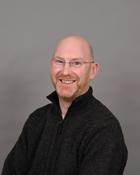Alan Metcalfe

Floor 4
Informatics Collaboratory of the Social Sciences
The University Of Sheffield
219 Portobello
Sheffield
S1 4DP
Tel: 0114 222 6294
A.Metcalfe@sheffield.ac.uk
Background:
Alan took his first degree in Sociology at Leeds University (1991) and then an MA in Philosophy and Social Theory at Warwick University (1993) before teaching in Further Education colleges in Coventry, Bury and Pembrokeshire through much of the 1990s. After getting tired of the bureaucracy and culture of the sector he took a PhD in Sociology at Lancaster University.
He completed his doctorate in 2003; entitled Moving Stories it was an examination of people's experiences of moving house and how they sought to transform a house into a home. He is currently converting a number of chapters into articles for publication.
While writing up his thesis he took up a position as an RA in the School of Geography at The University of Nottingham on an ESRC funded project on Disposal, Devaluation and Consumerism: or how and why things come not to matter. On this project he worked with Nicky Gregson (University of Sheffield) and Louise Crewe (University of Nottingham).When this post finished in 2005 he moved to Sheffield to take up a post as a Research Fellow.
He has now moved to the School of Health and Related Research (ScHARR) where he is involved in a project on Men, Children and Food, part of the Changing Families, Changing Food Programme funded by the Leverhulme Trust.
Current Role:
To explore the effects on men and children of men's involvement or non-involvement with shopping and cooking for the family as well as finding out what impact male involvement in these areas has on food preferences in primary school aged children and to discover how changing roles in relation to food reflect or affect changes taking place in the family.
The findings from this project will contribute to our knowledge concerning men´s current roles in `feeding the family´ (as reflected in fathers´ perceptions and those of their children). More broadly, it will contribute to examining how fathers and children view `feeding the family´ in the wider context of family roles, relations and structures. This will also inform our understanding of the symbolic relationship between food, gender and shifting family relations.
The project on Disposal, Devaluation and Consumption is still an ongoing concern. Its aim was to investigate practices of divestment and disposal of unwanted possessions, and sought to consider how such disposal was an aspect of consumption, and was central to identity construction and social relations. The objects we were interested in included all types of household goods such as cars, clothes, televisions, computers, ornaments, furniture and so on, but excluded things such as waste food, packaging, bottles, newspapers and the like. This research involved conducting repeat in-depth interviews with 59 households in Nottingham and conducting 25 focus groups around the East Midlands.
Research Interests:
Home, belonging and identity; material culture and consumption; waste and disposal; gifts, gifting and money.
Experience & Publications:
Cwerner, Saulo B and Metcalfe, Alan (2003) 'Storage and Clutter: Discourses and Practices of Order in the Domestic World', in The Journal of Design History, Special Issue: Anxious Homes, ed. Lesley Whitworth 16 (3) pp. 229-239
doi:10.1093/jdh/16.3.229
Metcalfe, Alan (2006) `It was the right time to do it´: moving house, the life-course and kairos´, in Mobilities.
http://www.tandf.co.uk/journals/titles/17450101.asp
Metcalfe, Alan (2006) `Moving House, Haunted Homes´
Gregson, Nicky, Alan Metcalfe and Louise Crewe (2005) Moving Things Along: The Conduits and Practices of Divestment in Consumption.
https://www.sheffield.ac.uk/content/1/c6/04/72/08/Moving%20Things%20Along.pdf
Gregson, Nicky, Alan Metcalfe and Louise Crewe (2005) Identity, Mobility and the Throwaway Society
https://www.sheffield.ac.uk/content/1/c6/04/72/08/Identity%20Mobility%20and%20the%20Throwaway%20Society.pdf